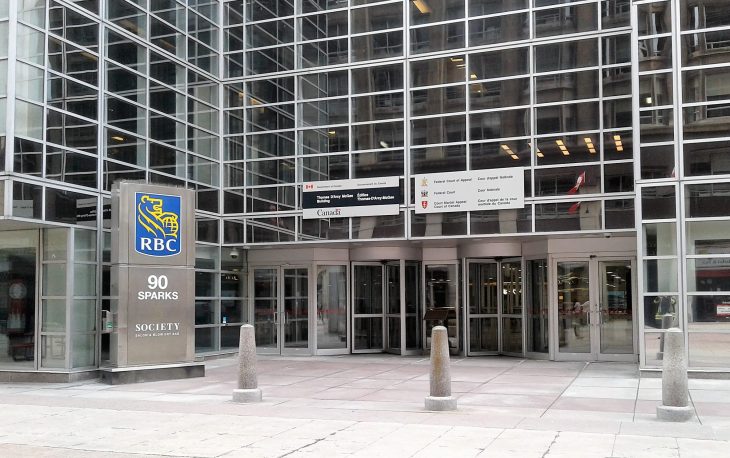
By Ahmad Hathout
The attorney general of Canada said in a letter Thursday that the Federal Court of Appeal should deny intervenor status to Music Canada but allow the Society of Composers, Authors and Music Publishers of Canada (SOCAN) to argue its position before a base contribution hearing next month.
The AG, on behalf of the CRTC, said SOCAN, the largest rights management organization in Canada, has met the requirements for leave because they are best suited to argue a very particular position: that royalty payments the appealing parties – Apple, Amazon, and Spotify – have said they pay for their music streaming businesses should not be counted toward Canadian content contributions because they are simply a requirement under copyright law and a “cost of doing business.”
“SOCAN proposes to make submissions on the nature and purpose of royalty payments and the relationship between such payments and Canadian content generation,” the AG said in its letter. “These proposed submissions are directly responsive to issues raised by Spotify and engage matters that SOCAN is uniquely positioned to address.”
SOCAN licenses and administers performing rights and collects royalties on behalf of over 200,000 members, including songwriters, composers and music publishers.
A prospective intervention of Music Canada, on the other hand, will not be helpful because its arguments are allegedly duplicative of positions of the appealing parties, the AG further argues.
Music Canada – a non-profit that represents and promotes artists and major recording labels, including from Sony, Universal, and Warner – will argue that the CRTC did not provide sufficient weight to the voluntary partnerships these large streamers have toward Canadian content generation when it ordered them to plow five per cent of their annual Canadian revenues to content funds.
“As Music Canada concedes, the issue it proposes to make submissions upon are comprehensively advanced by three existing parties to these proceedings – Apple, Spotify, and Amazon,” the AG said.
“Despite acknowledging this overlap, Music Canada does not explain how its proposed submissions will be anything but repetitive of those already being made by the parties. Instead, it simply asserts without explanation that it is better that such arguments be made by it. This is not a valid justification for what is otherwise an invalid intervention. Leave should not be given.”
The high court ordered a hearing on the appeal, to last several days, starting June 9.
The court consolidated four separate appeal applications from the Motion Picture Association of Canada (MPA) – representing the interests of Netflix, Paramount, Pluto, and Crunchyroll – as well as Amazon, Apple, and Spotify.
The MPA was the first to file a challenge in court, arguing that its members cannot be forced to financial contribute to the Independent Local News Fund (ILNF) because they derive no benefit nor do they have any part in creating expensive-to-produce news content.
Central to the MPA’s legal argument is the CRTC making the statement that the base contribution will “reflect the importance of independent broadcasting undertakings and the provision of news coverage” under two subsections of section 3 of the Broadcasting Act.
But the MPA contends that section 3(1)(d)(iii.5) does not refer to news and section 3(1)(i)(ii.1) does not mention foreign online undertakings when it states that the Canadian broadcasting system “should include programs produced by Canadians that cover news and current events — from the local and regional to the national and international — and that reflect the viewpoints of Canadians, including the viewpoints of Indigenous persons and of Canadians from Black or other racialized communities and diverse ethnocultural backgrounds.”
Amazon argues that the contribution decision is not equitable vis-à-vis the traditional Canadian broadcasters, whose online affiliates are exempt from the order. “The CRTC lacks the authority to discriminate between online undertakings based on their corporate affiliation with Canadian broadcasting undertakings,” Amazon said in its application. “The CRTC does not have – and does not identify – any authority to close any historical ‘gap’ in contributions between classes of undertakings by imposing new contribution requirements on only some undertakings.”
The e-commerce giant adds that the regulator did not address the contributions made by online streamers to the Canadian system, how those contributions compare to traditional Canadian broadcasters and, ultimately, how a five per cent levy is justified in light of these issues. It points, for example, to its Prime Video streaming business that it says passes on much of the revenue it collects in Canada to the streaming services of these Canadian broadcasters and to the royalty payments it makes to Canadian performance rights organization SOCAN.
Apple, which, like Amazon, has a video and music streaming service, agreed that there is an alleged unfairness in the decision, both in that the CRTC allegedly didn’t take into consideration how the foreign streamers already contribute to the Canadian ecosystem and in the fact that the online audio streamers are now forced to pay 5 per cent of revenues, which is higher than traditional radio contributions.
It also takes issue with the fact that the CRTC did not first define Canadian content before making the base contribution decision, which it says is contrary to the policy direction from cabinet that ordered it to prioritize what constitutes Canadian programming.


